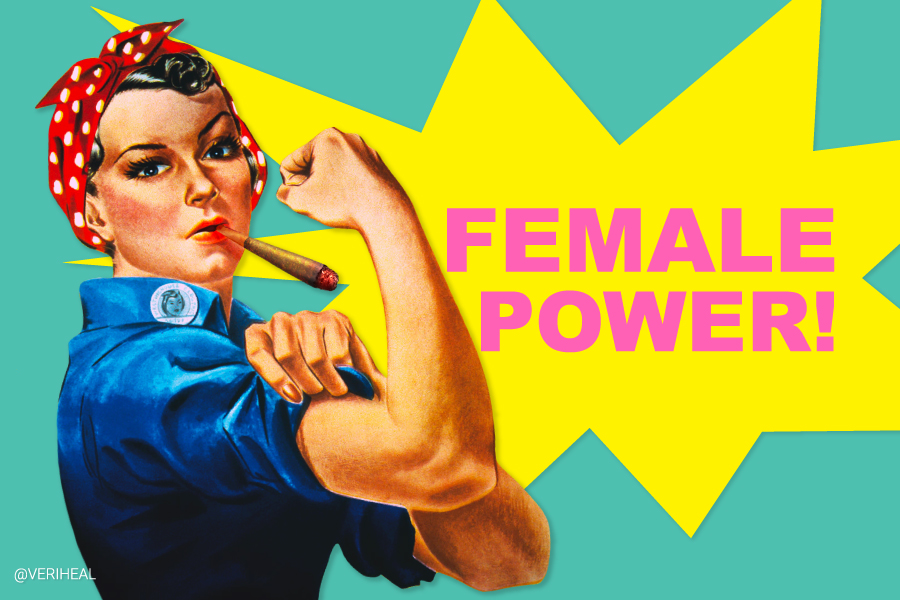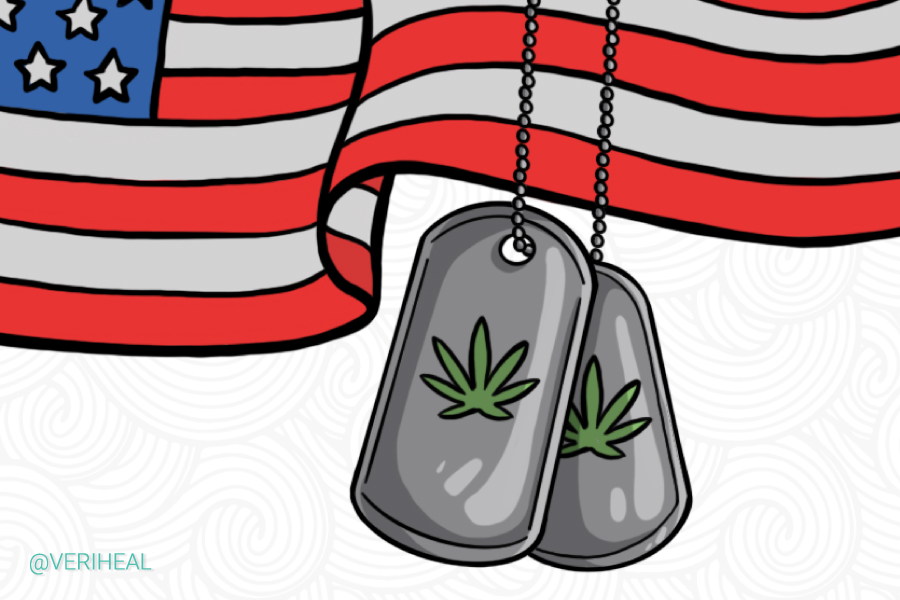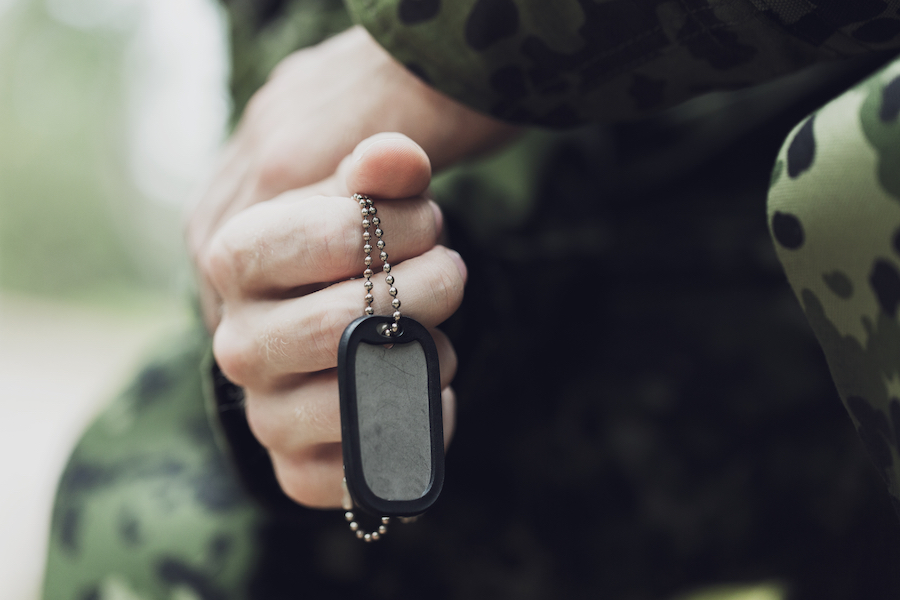Patients are Turning to Medical Marijuana for PTSD Relief
What You Need to Know: Cannabis for PTSD
Cannabis may assist in treating PTSD and anxiety alongside therapies like talk therapy and EMDR. PTSD symptoms include re-experiencing, avoidance, arousal, and cognition/mood issues.
Traumatic experiences can alter neurotransmitters, affecting stress responses. Recent research shows that cannabinoids like THC and CBD may reduce fear linked to traumatic memories by influencing the endocannabinoid system. In general, it is recommended that people take lower doses of THC because it can actually cause more anxiety and paranoia if it is taken in larger doses. Patients should choose between CBD only, high CBD, and 1:1 CBD to THC products to alleviate symptoms of PTSD.
CBD and lower THC doses can help with anxiety, while vape concentrates and tinctures are recommended for ease of use. Medical cannabis for PTSD should be used in conjunction with a mental healthcare provider’s recommendations and care.
The Science Behind Medical Cannabis for PTSD:
The typical approach in dealing with post-traumatic stress disorder (PTSD) and co-morbid anxiety is exposure-based therapies that include talk therapy and eye movement desensitization and reprocessing (EMDR). Current research is focusing on targeting neurotransmitters, the chemicals in the body that are released by the nerves (4) and affect a person’s thoughts, hormones, and more.
Through research, doctors have discovered a vast amount of information about the endocannabinoid system. The endocannabinoid system is composed of the cannabinoid receptors CB1 and CB2. They receive inputs from fat-based neurotransmitters that can be made in the body or introduced through medications or cannabis. The hippocampus is very rich in CB1 receptors; it is the structure in the brain responsible for learning, memory, and emotions (6).
When a person is exposed to a traumatic experience or stressful situations, the endocannabinoids being sent to the cannabinoid receptors change, creating a physical and mental stress response (6). Scientists believe that cannabinoids such as Δ9-tetrahydrocannabinol (THC) and cannabidiol (CBD) help change the endocannabinoids being released, affecting a person’s mood and the stress hormone cortisol’s levels (4). In addition, it can be an important tool during exposure therapy because of how these chemicals affect the hippocampus.
The activation of the endocannabinoid system during emotional processing helps extinguish or diminish fear responses an individual may have with a particular memory. It does not make the person forget the traumatic memory, but it helps remove the fear that is connected to and triggered by the memory (4).
Check out our guide about endocannabinoids for more information.
Cannabis and PTSD: Considerations to Keep in Mind
At low doses, THC has an anxiolytic, or anxiety-reducing effect that is similar to serotonin and norepinephrine reuptake inhibitors (SNRIs) and anti-anxiety medications such as buspirone. In addition, CBD also decreases anxiety and isn’t dose size-specific (5). Using it alone does not cause any intoxication like that experienced from marijuana. To learn more about how medical marijuana affects the anxiety component of PTSD, please check out our page on anxiety.
In general, it is recommended that people take lower doses of THC because it can actually cause more anxiety and paranoia if it is taken in larger doses (2). Patients should choose between CBD only, high CBD, and 1:1 CBD to THC products to alleviate symptoms of PTSD. This should be in conjunction with their mental healthcare provider’s recommendations and care. Doses of medical marijuana generally begin between 2-20 mg before bedtime and can be used during the day once an effective dose has been determined. PTSD Patients who don’t want to feel impaired should start with CBD only (2).
It may be helpful to keep a log of your dose and its therapeutic effects if you are new to cannabis products and share that information with your providers. Cannabinoids may only be one part of your treatment plan between you and your provider, and cannot replace personalized mental healthcare. Always report any worsening symptoms right away to a qualified healthcare provider, or seek emergency medical care at an emergency room.
Vape concentrates and tinctures are commonly recommended for treating PTSD and anxiety because they are easy to dose and these products typically contain the amounts of both CBD and THC that are in the product (2). Vaping may not be suitable for all people, however, and may carry other health risks.
Concentrates such as wax or shatter are not recommended for treating PTSD because they contain high doses of THC that may cause increased anxiety, distress, and paranoia. Edibles are also not recommended because they are difficult to adjust doses on. In addition, edibles are metabolized in the liver, which has effects that vary for each person (2).
Because tolerance occurs over prolonged cannabis use, having less effect on the CB1 receptors, any benefits from taking it for mental health can exacerbate symptoms when a user is not using it. Taking a tolerance break can re-regulate the CB1 receptors if this is the case (7).
Understanding PTSD Symptoms
There are four major categories of PTSD symptoms:
Re-experiencing symptoms (8):
- Flashbacks, or reliving the traumatic event and experiencing physical symptoms such as racing heart and sweating
- Recurring memories or dreams about the event
- Distressing thoughts
- Physical signs of stress
Avoidance symptoms (8):
- Avoiding thoughts or feelings related to the traumatic event
- Staying away from places, events, or objects that are reminders of the event
Arousal and reactivity symptoms (8):
- Being easily startled
- Feeling tense, or on guard
- Difficulty concentrating
- Difficulty falling or staying asleep
- Experiencing angry or aggressive outbursts and feeling irritable
- Engaging in risky or destructive behavior
Cognition and mood symptoms (8):
- Difficulty remembering key features of the traumatic event
- Negative self-thoughts and distorted thoughts about the event that cause feelings of blame
- On-going fear, anger, guilt, or shame
- Loss of interest in previously enjoyed activities
- Difficulty feeling satisfied or happy
In order to be diagnosed, a person must experience at least one re-experiencing symptom, one avoidance symptom, two arousal and reactivity symptoms, and two cognition and mood symptoms (8).
What Does the Science Say About PTSD and Medical Cannabis?
People who are receiving treatment of PTSD typically go through behavioral therapy that exposes them to the traumatic event or memory; this is called prolonged exposure therapy. After patients are exposed over and over again, when they recount the event, their anxiety and the feelings associated with the memory becomes more manageable. This is followed by a process called extinction, where the reduced fear level is used to create a new and present association with the traumatic stimulus (9). Prescription medications are also commonly used in conjunction with, or instead of, therapy only under the supervision of a licensed provider.
Researchers led by Christine Rabinak at Wayne State University in Detroit, MI are currently in the process of conducting a multi-phase study focusing on how THC and other chemicals in marijuana affect patients who have PTSD and are undergoing prolonged exposure therapy (9). The first phase of this study began in 2014 with rodents.
Rabinak discovered that when THC is given to patients before extinction learning, they experience less intense emotions than what was previously associated with the traumatic memory. In addition, patients were more likely to continue experiencing diminished emotions associated with the memory (9). The results here are currently being tested in a double-blind and placebo control group study, but this is promising for marijuana users who are PTSD sufferers. Essentially, ongoing research suggests that we not only can use cannabis to treat trauma-related anxiety, but that we can also utilize it as a tool in therapy sessions.
A 2020 study from Cannabis and Cannabinoid Research followed 150 patients over a year in order to compare PTSD in cannabis users versus patients who did not use it. Though this study did not set up controls on how cannabis was being taken or how frequently it was being used, it did evaluate patients every three months with self-administered PTSD assessments and logs that collected data on how often the patients used cannabis and the ingestion methods (10).
This observational study showed that patients using cannabis experienced a greater decrease of PTSD symptoms of the year evaluation period as well as were 2.57 times more likely to no longer meet the DSM-5 criteria for PTSD. The results show that cannabis that is available from dispensaries might hold promise as an alternative treatment for PTSD, although more randomized and placebo control studies are needed in order to determine how different methods of consuming it impact PTSD (10).
A Patient’s Experience Using Cannabis for PTSD
Ashley Priest is a cannabis writer who works for a variety of publications including Veriheal’s Cannabis Central blog. Check out Ashley’s author page here. She is a mother living with PTSD, anxiety, and depression. She recently shared insight into her use of medical marijuana use for these conditions:
“Since losing two children, my husband and I both suffer from severe PTSD, anxiety, and depression. Thanks to cannabis, we have been able to avoid antidepressants and other forms of pharmaceuticals that modern medicine has tried to shove down our throats. We utilize a combination of cannabinoid therapies which include flower, concentrates, edibles, and oils. We love to grow our own cannabis and make our own medicine including activated THC capsules. Thankfully, we live in Oklahoma where we are able to do just that and by doing so are able to keep our PTSD, depression, and anxiety at bay. I wouldn’t even want to imagine what it would be like if we didn’t have cannabis and had to rely on pharmaceuticals. Because of cannabis, we are able to not only keep our issues at bay, but we are also able to be productive members of society and are present in our children’s lives, not zombified on pharmaceuticals still knee-deep in anxiety and PTSD attacks.”
Note: Veriheal does not intend to give this as professional medical advice. Do not attempt to self-diagnose, or prescribe treatment options based on the information provided on this page. Always consult a physician before making any decision on the treatment of a medical condition.
1. Cuttler, C., Spradlin, A., Nusbaum, A.T. et al. Blunted stress reactivity in chronic cannabis users. Psychopharmacology 234, 2299–2309 (2017). https://link.springer.com/article/10.1007/s00213-017-4648-z.
2. Johnson, B., MS,RDN. (2020, Spring). Calming Anxiety with Cannabis. CRx Magazine. Retrieved December 29, 20, from https://www.crxmag.com/issues/2020/spring/calming-anxiety-with-cannabis.shtml#.
3. Levin, A., & Search for more papers by this author. (2013, July 20). Neurotransmitters Studied as Way to Enhance PTSD Treatment. Retrieved January 18, 2021, from https://psychnews.psychiatryonline.org/doi/full/10.1176%2Fappi.pn.2013.7b9
4. Rabinak, C. A., Angstadt, M., Sripada, C. S., Abelson, J. L., & Liberzon, I. (2013). Cannabinoid facilitation of fear extinction memory recall in humans [Abstract]. Neuropharmacology, 64, 396-402. https://link.springer.com/article/10.1007/s00213-017-4648-z.
5. Raymundi, A. M., Silva, T. R., Sohn, J. M., Bertoglio, L. J., & Stern, C. A. (2020). Effects of ∆9-tetrahydrocannabinol on aversive memories and anxiety: A review from human studies. BMC Psychiatry, 20(1). https://pubmed.ncbi.nlm.nih.gov/32842985/.
6. Scarante, F. F., Vila-Verde, C., Detoni, V. L., Ferreira-Junior, N. C., Guimarães, F. S., & Campos, A. C. (2017). Cannabinoid Modulation of the Stressed Hippocampus. Frontiers in molecular neuroscience, 10, 411. https://www.frontiersin.org/articles/10.3389/fnmol.2017.00411/full.
7. Stoner SA. Effects of Marijuana on Mental Health: Anxiety Disorders. Alcohol & Drug Abuse Institute, University of Washington, June 2017. URL: http://adai.uw.edu/pubs/pdf/2017mjanxiety.pdf
8. US Department of Health and Human Services. (2020). Post Traumatic Stress Disorder [Brochure]. Author. Retrieved January 18, 2021, from https://www.nimh.nih.gov/health/publications/post-traumatic-stress-disorder-ptsd/index.shtml
9. Wethington, L. (2019, January 11). WSU researchers study marijuana’s effect on PTSD. Retrieved January 18, 2021, from https://www.thesouthend.wayne.edu/article_88c56cc0-0c6f-11e9-acf0-2f9ec9bb5a89.html
10. Bonn-Miller, M. O., Brunstetter, M., Simonian, A., Loflin, M. J., Vandrey, R., Babson, K. A., & Wortzel, H. (2020). The long-term, Prospective, therapeutic impact of cannabis on post-traumatic stress disorder. Cannabis and Cannabinoid Research. https://www.liebertpub.com/doi/10.1089/can.2020.0056

















